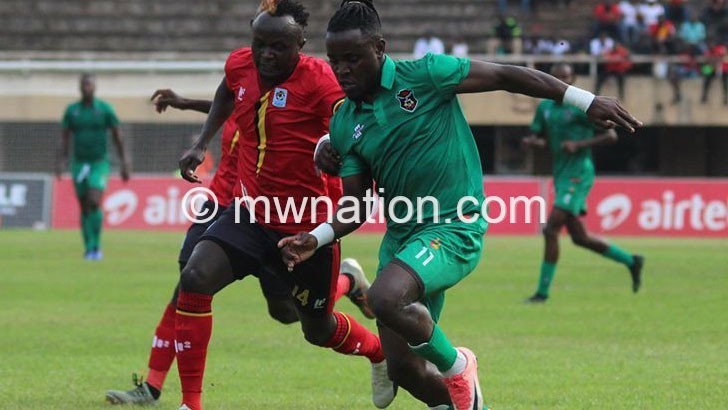Soladite rocks awaiting to be loaded
Malawi national football team’s poor performance in the past decade has overshadowed postive strides of Football Association of Malawi (FAM), Weekend Nation’s analysis of the association’s strategic plans can reveal.
FAM’s four-year strategic plans between 2009 and 2019 focused on a number of targets with the objective of professionalising football by the end of this year.

To achieve this, FAM planned to train more coaches at all levels—TNM Super League, women’s football leagues, youth leagues and regional leagues.
The association targeted all TNM Super League coaches to have at least CAF B coaching licence as a benchmark.
In refereeing, FAM wanted more referees to upgrade to elite level so that they officiate at international matches while in youth football development, the association introduced Under-12, 14, 17 and 20 leagues targeting youth development programmes in all districts.
In women’s football, the focus was on improving technical and administrative areas to attract 3 000 women with 20 teams in each regional league.
To improve the level of understanding in football administration, FAM targeted to train officials from regional associations, Super League clubs and Super League of Malawi (Sulom).
Improving marketing and sponsorship of the game by attracting more corporate partners, were the other critical targeted areas.
FAM general secretary Alfred Gunda admitted that though the association managed to achieve some targets they also faced challenges in other areas.
“We have managed to win back corporate confidence with the coming of new sponsors on board such as Fisd, Airtel, FDH, Rab Processors, Ecobank and continued partnership with TNM.
“In infrastructure development, we have managed to upgrade the Chiwembe Technical Centre into a full football village with a 5 000-seater stadium which recently hosted Under-17 Cosafa Championship, restaurant, gym, hostel, bar and office block. We also managed to construct Luwinga Technical Centre and securing of land in Lilongwe for another technical centre,” he said.
On governance, Gunda said the association is now running as a professional entity.
“There has been good accountability of Fifa funds which saw Malawi getting up to five goal projects when most countries in Africa were at two or three.
“We have managed to host high profile inaugural Fifa projects like launch of the Fifa Under-15 League, Fifa technical directors workshop, infrastructure workshop and financial auditing workshop,” he said.
FAM competitions and communication director Gomezgani Zakazaka said the association has also managed to create competitions, communication, facility and transfer matching system (TMS) departments which have brought sanity in football management.
“These departments were not there 10 years ago. With them in place now, you can see a systematic running of things,” he said.
National Women’s Football Association chairperson Suzgo Ngwira said women’s football has improved with all the country’s three regions having vibrant leagues while the national team has participated in international competitions and produced top players such as overseas based Chawinga sisters—Tabitha and Temwa.
“Major challenges have been lack of consistent sponsorship at club level, league, cup level and at international level. Almost all clubs are supported by individuals.
“There has also been lack of targeted courses for women football administrators, coaches and limited exposure for the national team at international stage,” she said.
Ngwira also bemoaned lack of designated infrastructure for women football and absence of women’s football secretariat.
National Youth Football Association chairperson Chimango Munthali said it has been a decade of mixed fortunes for youth football.
“The major achievement is that for the first time FAM recognised NYFA as an affiliate that is delegated to run youth football. In the past, we did not have a vibrant youth football body. This, in its own, has enabled smooth running of youth development programmes.
“For the past five years we have had a consistent Under-20 league sponsored by First Capital Bank which has helped a lot in identifying talent. That alone is a big achievement. Right now we have such leagues in 14 districts,” he said.
He also applauded FAM for consistent participation in regional competitions.
“Ten years ago we did not care whether we participate in Under-17, Under-20 or Under-23 regional tournaments,” said Munthali.
The introduction of Fifa Under-15 leagues is another positive stride made in the last decade, though Munthali felt it needs to be restructured so that it is sustainable in the absence of Fifa funding.
At the end of the day, these achievements, the association envisaged in its strategic plans, would help to improve performance at all levels thereby spurring national teams to qualify for major tournaments such as Africa Cup of Nations, African Nations Championship and World Cup.
In 2010 Malawi qualified for the Angola Africa Cup of Nations (Afcon), but 10 years later the team has failed to repeat the feat.
Gunda said the major challenge in national team’s performance has been funding.
“The game’s challenges are many and varying at different levels. The requirements of the game are reasonable levels of investment and finances have been the major hurdle,” he said.
FAM also targeted commercialisation of the TNM Super League through Fifa’s club licensing which is yet to take off in earnest.
Karonga United chairperson Alufeyo Chipanga Banda pointed out that TNM Super League professionalisation has failed to take off as clubs are struggling to survive mainly due to failure by FAM and Sulom to maximise revenue collection such as gate collections, television rights and shirt sponsorship.
“These are the things that make clubs to struggle to develop. In the past 10 years we have seen clubs fold up due to financial problems because the environment is tough. Running a club is a nightmare in Malawi.
“TNM’s league sponsorship has remained at less than K100 million in 10 years despite an outcry from clubs. This is one area that FAM and other stakeholders need to look into,” he said.
FAM has since drafted a fresh strategic plan to run from 2019 to 2022.





